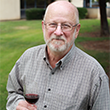- Level Foundation
- Duration 45 hours
- Course by University of California, Davis
- Total students 667 enrolled
-
Offered by

About
With its roots in ancient cultures as early as 6,000 BC, wine has long been part of the human experience. Today, increasing worldwide interest in wine and its complexities and varieties has created an international market valued at $304 billion annually. For the learner who is just getting started in the study of wine, this course will help you take the first steps toward understanding the physiological process of wine tasting. The first module will explore types of wine and help you set up your own tasting. You'll also begin to build a sensory vocabulary. In module 2 you will review classic wine types of the world and set up flights of specific wines. Later we'll examine the various faults and defects that can appear in wine as well as techniques for spotting problems. In week 4 we'll delve into the complex world of wine and food pairings, and its "seven deadly sins." The course will culminate in a peer review project in which you will apply the knowledge and sensory techniques you have developed throughout the course to assess a specific wine.
What you will learn
- Discuss sensory physiology of various wines
- Compare and contrast flavor profiles of classic red varietals and classic white varietals
- Create wine defect sniff standards
- Discuss flavor profiling and how to change a wine or food to make the pair work
- Demonstrate an understanding of the wine tasting process and techniques needed for a wine analysis
Auto Summary
Discover the fascinating world of wine with "Wine Tasting: Sensory Techniques for Wine Analysis." Perfect for beginners, this foundational course by edX in the Health & Fitness domain spans 45 days. Learn to understand wine tasting, identify types, spot defects, and master food pairings. Engage in hands-on modules and culminate your learning with a peer-reviewed project. Subscribe professionally to refine your sensory vocabulary and analysis skills in this $304 billion industry.

John Buechsenstein


